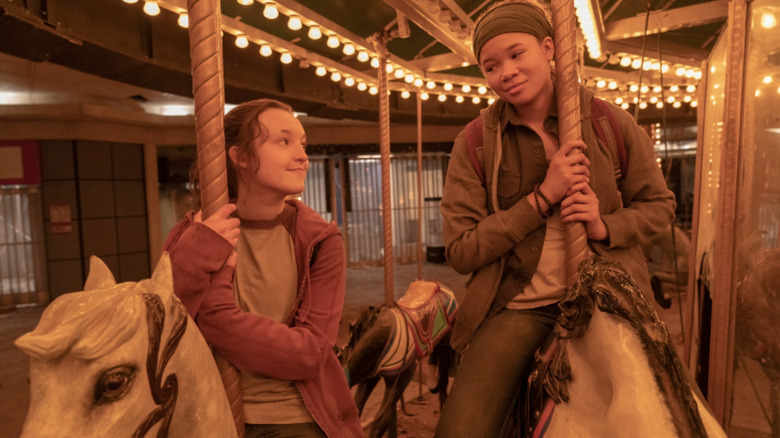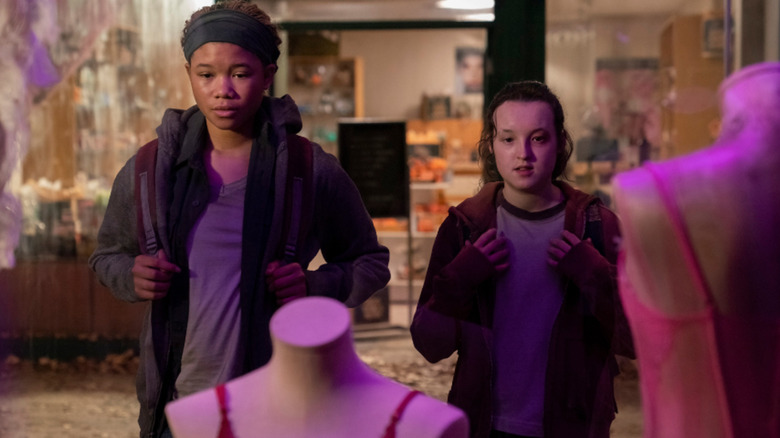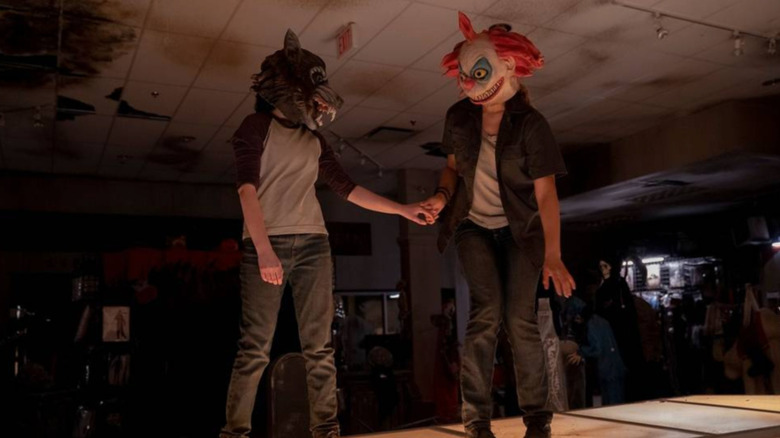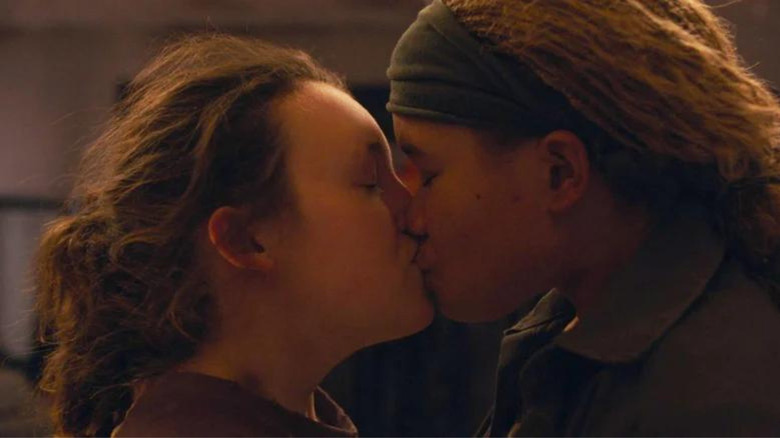The Last Of Us Episode 7 Reminds Us Queer Kids Exist And That's More Important Than Ever
This piece contains spoilers for "The Last of Us" episode 7, "Left Behind."
"The Last of Us" has a special way of both healing and breaking our hearts every week. Some of this has to do with the heartwrenching source material, but the majority of it comes through in its unique performances. No matter who graces our screens each week, Pedro Pascal's Joel and Bella Ramsey's Ellie effectively stand out by making their characters their own, even in its direct riffs from the Naughty Dog video game. The same goes for its rotating cast of recurring characters, including Storm Reid's take on Ellie's best friend Riley in its latest episode, "Left Behind."
Fans of the franchise have been both anticipating and dreading the release of "Left Behind" for a while, and for good reason. While it is foundational in expanding Ellie's characterization, it is also a deeply devastating and oddly relatable DLC that has resonated with the franchise's LGBTQ fanbase ever since its release. Thankfully, the series adaptation is no different. Although it isn't a sprawling epic like "Long, Long Time," it's a different kind of queer love story that highlights the rollercoaster of self-discovery in your youth. It also serves as a poignant reminder that queer youth are more than just pawns in our current sociopolitical culture war.
Nothing to be sorry about
No matter what some talking head pundits might say, teenagers discovering their queerness is a natural thing. When I first began experiencing attraction to my female classmates in high school, I was met with a flurry of weird, confusing feelings — I got butterflies in my stomach whenever I saw my crush in the hallways, and I often found myself making impulsive decisions when around them. It's just that the overarching pressure of potential homophobia ended up souring my journey of self-discovery. I know I'm far from the only person to experience this with a same-sex crush in my youth, and I definitely won't be the last.
When watching "Left Behind," I saw a lot of my younger self in Ellie. As she wanders through that deserted mall with Riley, she silently starts to realize that her complicated feelings towards her friend aren't entirely that of friendship. She has a desire to know Riley deeper and more intimately, through good and bad in a way that transcends just wanting to be someone's friend. However, these feelings are foreign and confusing to her, and it's only with an impulsive and curious decision that she realizes what they actually were. Despite her point of view largely being unknown, we at least know that Riley felt a similar conflict of emotions as evidenced during the now-famous Victoria's Secret scene. All of this is typical teenage crush behavior, just between two young girls instead of being between a girl and a boy.
Fighting for survival
Sure, "Left Behind" shouldn't be heralded as the end-all-be-all of young adult LGBTQ media, and it certainly, well, left behind a lot of different aspects of teenage queerness. However, /Film's BJ Colangelo put its importance in our current landscape best, writing that "even in the apocalypse without any entertainment, social media, or outside influence, Ellie and Riley still wound up queer." That's because, while there can be outside influences at play with sexuality, queer kids have always existed and will continue to exist, no matter what anyone says.
If you're confused as to why this is important, look around you. My home state of Florida has enacted bans on books pertaining to LGBTQ issues in public schools, is currently attempting to revamp an inclusive liberal arts college into a conservative haven, and has banned discussion on sexual and gender orientation in schools. This isn't even talking about the entire U.S., where some states have begun introducing harsh laws that threaten the already-minuscule progress queer people have made in recent years. All of this, they claim, is to protect children and teenagers. The question is, what exactly about queerness do they need protection from if they are experiencing the same feelings every other kid has, just towards the same sex?
Losing our minds together
It won't be surprising to hear the inevitable backlash that "Left Behind" produces, and it's sad that I even have to anticipate the backlash. It might be an easy target due to its status as art that doesn't necessarily reflect the real world, but "The Last of Us" has always been a metaphor for the current state of our world and political systems. Just because it's a fictitious show doesn't mean that it can't display real aspects of humanity, and that sort of strawman detraction only makes the episode that much more important.
The real beauty of "Left Behind" lies in its normalcy, at least by the standards set by the show. Both Ellie and Riley are nervous but comfortable in their subtle explorations of queerness, and every teenager should be given that support to come into themselves. We can't let conservatives and the alt-right try to convince others that queerness is sinisterly embedded in kids, because that's not how it works. Queerness has always and will always exist in some children and teenagers, and much like how Ellie and Riley deserved a safe space for their identities to flourish, queer kids in our real world do, as well.



